Questions have been raised about the deal to resettle refugees detained on Nauru and Papua New Guinea's Manus Island in the United States.
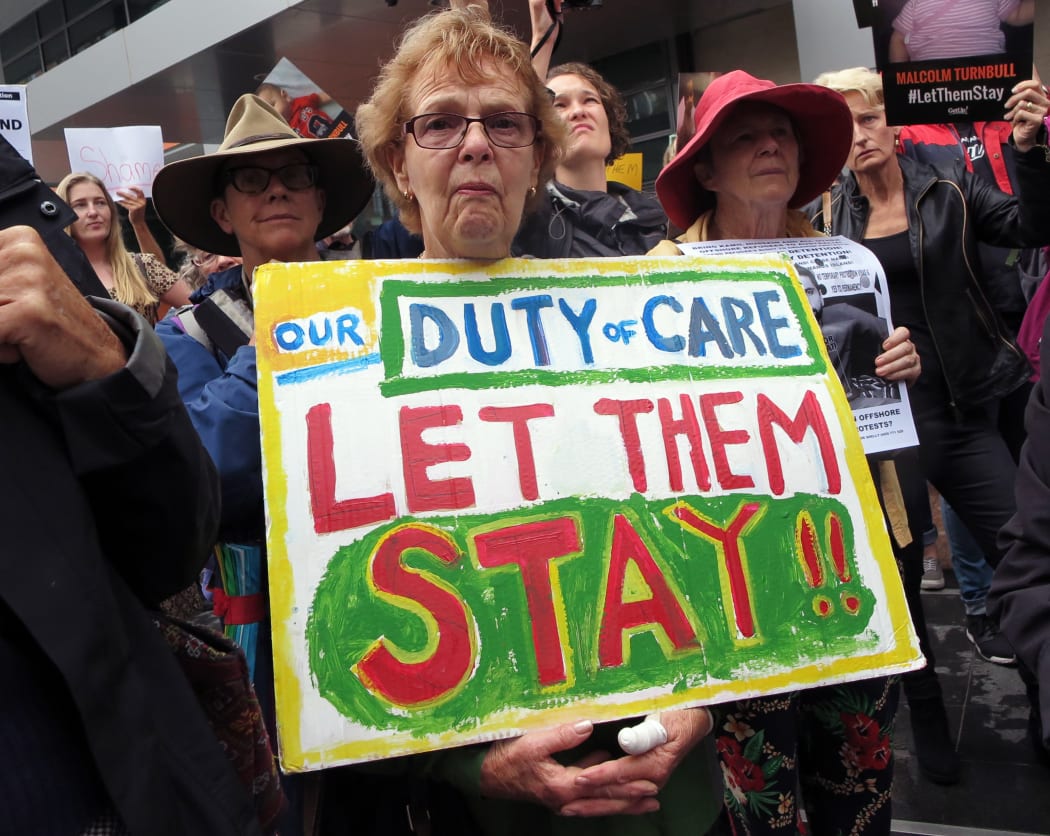
People hold up placards at a protest outside an immigration office in Sydney on February 4, 2016. Photo: AFP
The United Nations Refugee Agency, refugee advocates and refugees themselves said the deal could leave families divided and maroon some asylum seekers on the islands forever.
Under the deal announced yesterday by the Australian Prime Minister, Malcolm Turnbull, the resettlement would be co-ordinated by the UN Refugee Agency.
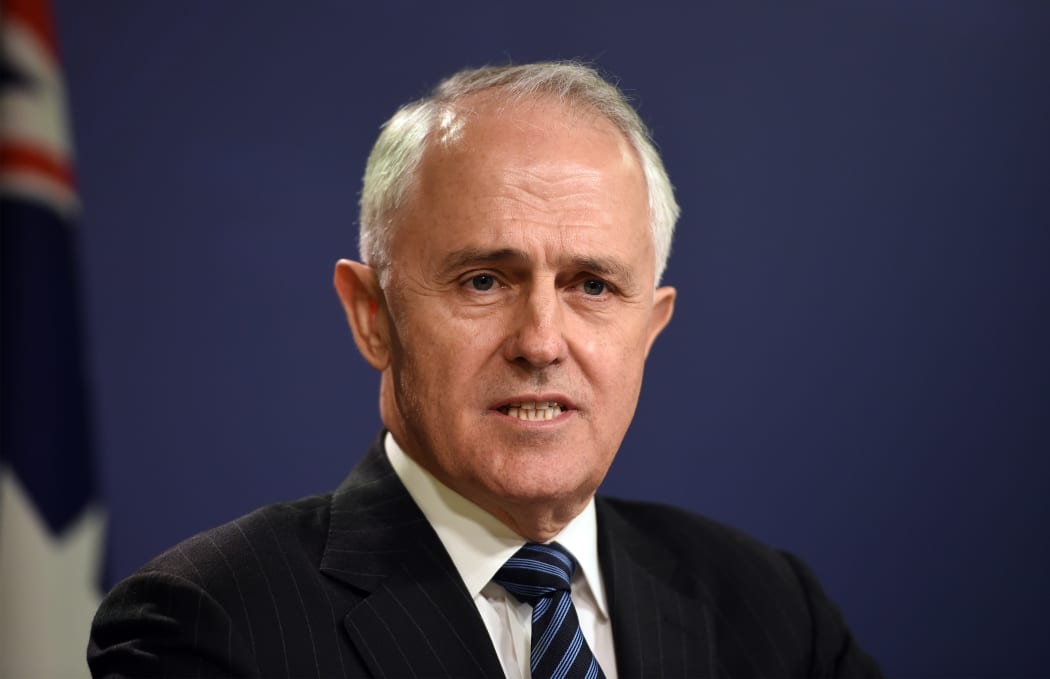
Australia's Prime Minister Malcolm Turnbull at a recent press conference in Sydney. Photo: SAEED KHAN / AFP
The Agency's Canberra office said in a statement, however, that while it endorsed the agreement it was not a party to the deal.
"The arrangement reflects a much-needed solution for refugees who have been held for over three years and who remain in a precarious situation. Appropriate solutions must be found for all of them. Australia must be part of the solution for refugees and asylum seekers who have family ties to Australia."
The director of legal advocacy at the Human Rights Law Centre, Daniel Webb, said the deal foreshadows the deportation of 370 Nauru and Manus Island refugees currently in Australia.
"This announcement is full of holes. No timeframe. No numbers. No detail on what the government will do with the hundreds of innocent people who will be left behind. It's not a plan," he said.
"It also says nothing about whether families separated by the current offshore detention arrangements will ever be reunited."
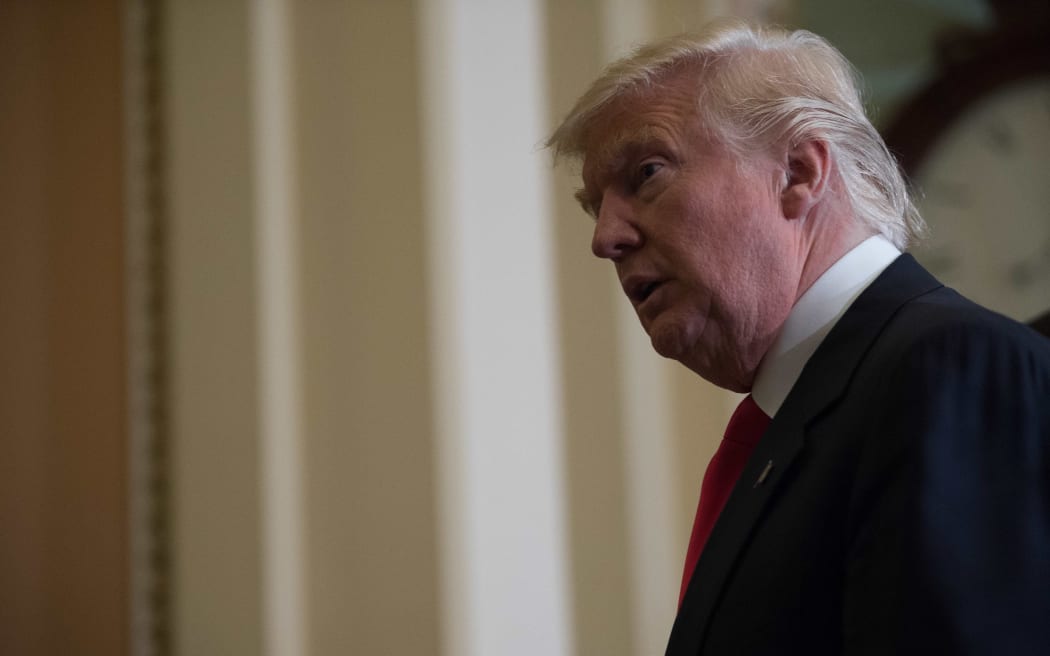
Donald Trump in the White House after winning the 2016 Presidential Election. Photo: AFP
About 1600 refugees could be eligible for resettlement in the US, but the Refugee Action Coalition's Ian Rintoul said there was a danger President Trump could back out of the arrangement.
Mr Rintoul said even if the deal went ahead the priority it gave to resettling families, women and children meant hundreds of single men could be left behind.
"What is very clear is that this is not an all encompassing deal. This is something which has been done in haste, it's been done by a desperate government I think probably driven by the change of administration in the United States," said Mr Rintoul.
"It is absurd that the Australian government is not willing to provide protection to people who have come here by boat but is willing to go to the United States and other countries to see whether it can."
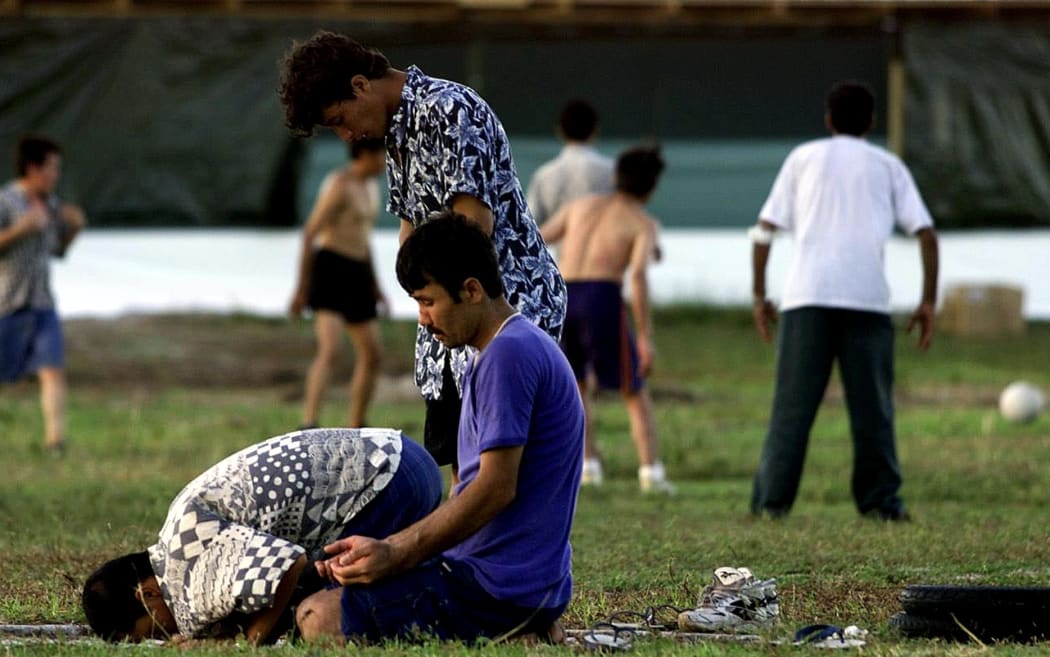
Photo: AFP
The Manus Island detainee and Kurdish Iranian journalist, Behrouz Boochani, also doubts President Trump will honour the deal.
Mr Boochani said he was not willing to leave Manus until Australia was made to answer for his wrongful three-year detention
"If they want to transfer me to America it's hard for me to accept because of justice. They tortured me, how can I accept that, they tortured me for a long time. I will stay here and I will resist. I want to say, no, you don't have respect for human rights and show to people that there is not any justice."
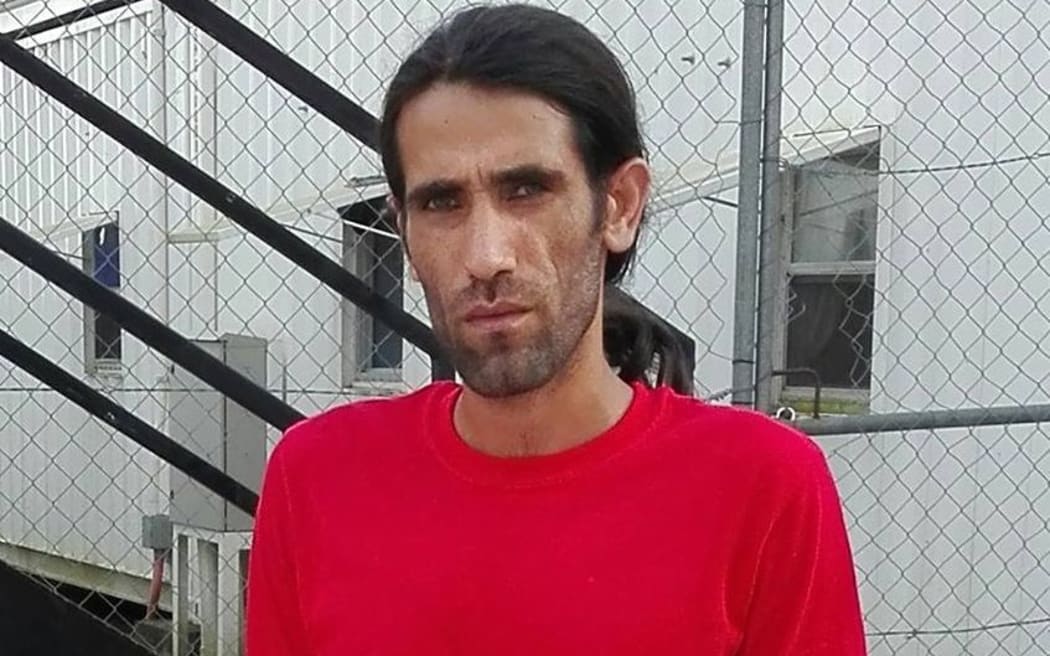
Behrouz Boochani recognised for his reporting under tough conditions Photo: Facebook
Malcolm Turnbull, on the other hand, is confident President Trump will honour the deal.
"The United States has no closer ally we have no closer ally. So we have a very long history of cooperation with the United States in matters of this kind where we are able to pursue our mutual and our respective humanitarian and indeed national security objectives."
Mr Turnbull said US officials would visit Australia and Nauru later in the week to begin vetting the refugees.

